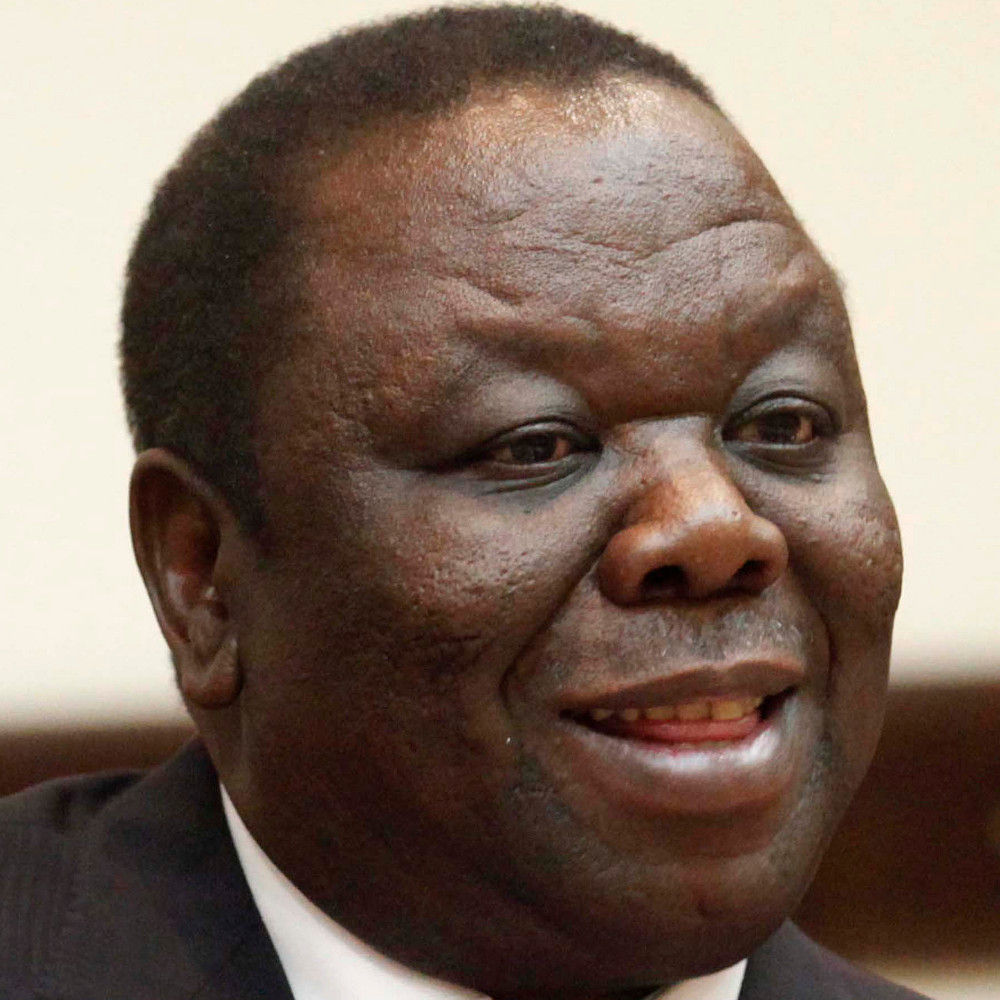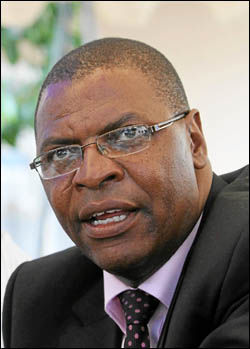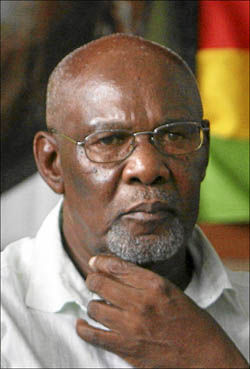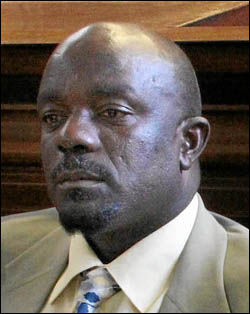Zimbabwe President Robert Mugabe.
President Robert Mugabe is standing for a seventh time in an election that he describes as the "fight of our lives".
He is hoping that his platform of black empowerment and the usual anti-imperialist rhetoric will once again return him to power. But, at 89, his age has become an issue more than ever before, and it is his party's biggest liability.
His opponents have put his age right at the centre of their campaigns. He has cut the number of rallies and ordered his officials to cut out the traditional praise-singing sessions to make rallies shorter. But he has defied his age and confounded his critics many times on the campaign trail. Last week, he stood and spoke for two and a half hours at a rally in Chinhoyi, berating the usual suspects from the British to gays.
His main platform is his campaign to deliver majority ownership of the economy to black Zimbabweans. His party says the policy will "unlock" about $7.3-billion from foreign-held entities, which would be used to support infrastructure and social services, and provide capital to black-owned businesses.
Under Mugabe's plan, 1138 companies in 12 different sectors would be targeted over the next five years.
Indigenisation would "be the centrepiece of the work programme of the government over the next five years", says Zanu-PF. Mugabe's indigenisation policy would create 2.265-million jobs, and grow the economy by about 9% a year by 2018.
But Zanu-PF's swanky campaign is hobbled by questions about Mugabe's age. The Movement for Democratic Change (MDC) has said his age is a "national security issue", and his speeches have been laboured in recent weeks.
One Associated Press report captured the age debate by stating that Mugabe was "born as the Ottoman Empire drew its final breath and when Calvin Coolidge was still in the White House".
But Mugabe is hoping he can still rely on his traditional rural support base to pull him through. Although violence is not a major factor in this campaign, the fear of reprisals remains in parts of the country where Zanu-PF has control.
He still enjoys the support of the military and, according to his opponents, those running the elections are loyal to him. However, unrest among rank-and-file police officers over the chaotic "special voting" for security forces recently suggests his support in the security sector does not go too far beyond the top brass.
 Morgan Tsvangirai
Morgan Tsvangirai
Tsvangirai (61) is challenging Mugabe for a third time, hoping finally to end his losing run against the veteran leader.
He has not shifted from his mantra of "change" – he does not need to because the message still finds support among his mostly young and largely poor urban supporters who are desperate to get rid of Zanu-PF.
The personal scandals that rocked his candidacy in 2012 put a major dent in his credentials as a credible alternative to Mugabe, and opinion polls showed some of the sheen had worn off his party. Poor service delivery under MDC-controlled councils has also hurt his party.
He has, however, over recent weeks managed to turn his fortunes around with a vibrant campaign that has drawn huge crowds to his rallies.
The odds are stacked against him: the top brass in the security forces, made up of war veterans, remains strongly opposed to Tsvangirai, who they see as a lackey of Western powers. In the four years his party was in government, it could not get enough power to influence how elections are run, and his party claims a plot to rig the poll.
However, he has been able to campaign in Zanu-PF strongholds, as he did in the first round of 2008, when he got more votes than Mugabe. In 2008, Tsvangirai won 47.9% of the vote to Mugabe's 43.2%.
Tsvangirai has put jobs at the centre of his campaign. He says his economic plan, based mostly on foreign investment, would create a million jobs in five years.
 Welshman Ncube
Welshman Ncube
Ncube, a founding secretary general of the MDC, leads a breakaway wing of the MDC. He is unlikely to win the poll, but may garner just enough seats in Parliament to enable him to be a key player in the next government.
His candidates held the balance of power in the last Parliament, giving his party some leverage. His campaign platform, "devolution is the new revolution", may win him some votes in deprived southern regions that have long hoped for more administrative power. However, his critics say he has focused too much lately on his rivalry with Tsvangirai, launching his own campaign much later than the other candidates.
 Dumiso Dabengwa
Dumiso Dabengwa
A war hero and a former home affairs minister, Dabengwa (74) is the leader of the Zimbabwe African People's Union (Zapu).
He was head of intelligence for the military wing of Zapu during the war, and was known as the "Black Russian" because he was trained in Moscow.
In 1982, as tensions simmered between Mugabe and Zapu leader Joshua Nkomo, he was charged with treason. He was acquitted because of a lack of evidence, but Mugabe used his powers to jail Dabengwa for four years.
He later joined Mugabe in a unity government after Nkomo signed a unity agreement to end hostilities that had left thousands dead in Matabeleland and the Midlands.
In 2008, he left his position in Zanu-PF's top council, the politburo, to back Simba Makoni, who had also left the party to stand against Mugabe.
He announced later that the "Zapu component" of the united Zanu-PF was pulling out of Zanu-PF, but found no support from his former comrades, who stayed with Mugabe.
He has no chance of winning the poll, but has forged an alliance with Ncube, which could win the party some votes in the Matabeleland provinces.
 Kisinoti Mukwazhe
Kisinoti Mukwazhe
A fringe candidate whose only contribution to the campaign so far has been to be the butt of jokes on social media, Mukwazhe is head of the Zimbabwe Development Party, which was formed on the eve of the 2008 polls. He has vowed to raise the minimum wage if elected.